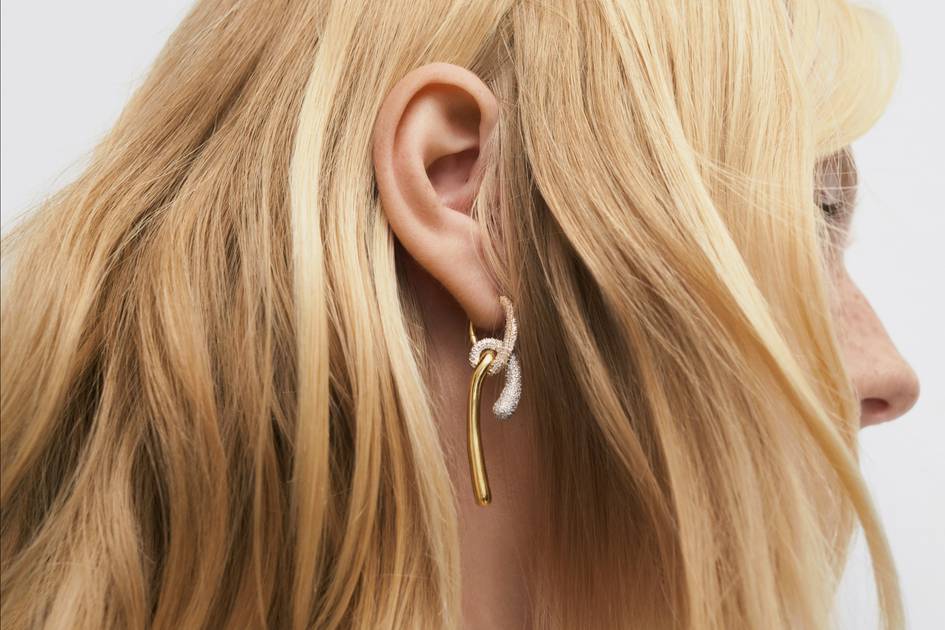It was a rough year for small apparel brands that were faced with slow payments from retailers, the demise of Matches, political and economic uncertainty, and lingering effects from the pandemic.
This year saw the closing of such firms as Mara Hoffman, The Vampire’s Wife, Calvin Luo, Dion Lee, Harlow, and Interior, among others. Some, including Alexandre Vauthier, Roksanda and Y/Project, went up for sale after hitting financial difficulties, while others changed focus.
Six-year-old Puppets & Puppets stopped making its ready-to-wear to focus on its handbag business. Its founder and designer, Carly Mark, said it was expensive and too hard to keep making clothes and trying to build a business in New York City. She said she would move to London and keep her more lucrative and successful handbag business going from there.
Australian brand Tunik also paused apparel production to focus on jewelry.
Rhode, the Los Angeles-based contemporary firm, said Thursday it would close its doors in the coming weeks.
AZ Factory said it would shutter its fashion brand and cease retail operations, but continue to support independent fashion designers. Initially a new vehicle for acclaimed designer Alber Elbaz that evolved into a hub for serial collaborations following his death in 2021 from COVID-19, the start-up is being transformed into a post-graduate educational program.
Harlow, an Australian size-inclusive brand, closed in August after 12 years. Its founder, Kerry Pietrobon, said that there were just too many brands, and too many choices, and companies were cannibalizing each other.
“Surviving as a small independent brand in a sea of heavy discounting from big brands during a cost-of-living crisis is like trying to be a flickering flame in a storm,” she wrote on Instagram.
Chinese designer Calvin Luo, who has presented collections in New York, Paris and Shanghai, decided to put his namesake label founded a decade ago on hold from the first quarter of 2025, as he looks to step away from fashion’s standardized routine to “learn, explore, and truly experience life,” he said.

Calvin Luo
Getty Images
“Those familiar with the fashion industry understand that it is akin to riding a bicycle — you must keep pedaling or stop altogether. Each year follows a predictable rhythm and schedule, almost like a preset answer,” Luo told WWD. “Continuing as is would likely mean staying in this intense industry cycle indefinitely, which is not the life I envision for myself.
“Looking ahead, I see a path that becomes highly commercialized and commoditized, where dealing with numbers overshadows the creative process, and most of my energy is spent on non-design-related tasks. This is not what I desire,” said Luo.
“Looking ahead, I see a path that becomes highly commercialized and commoditized, where dealing with numbers overshadows the creative process, and most of my energy is spent on non-design-related tasks. This is not what I desire.”
Calvin Luo, Designer
While New York-based 3.1 Phillip Lim and the Fast Retailing-owned Helmut Lang continue to be in business (and a spokesperson for Lim said business is doing well this year with year-over-year growth), both well-known labels went through big changes this November. Lim, cofounder and creative director of his namesake label, decided to leave his role after 20 years at its helm while Peter Do parted ways with Helmut Lang after serving as its creative director since May 2023; neither brand has announced succession plans.
New York-based brand Interior shut its doors in August after only three years in business. Founded by Jack Miner and Lily Miesmer, the brand quickly gained attention for its conceptual-meets-practical designs, was sold at the likes of Bergdorf Goodman, Neiman Marcus, Saks, and Net-a-porter and was nominated to the Fashion Trust US earlier this year. However, Miesmer quietly exited the brand at the end of 2023 prior to the brand immediately ceasing operations this summer as a result of economic instability.
Julie Gilhart, president of her own consulting firm, Gilhart & Co., blamed small firms’ struggles on a combination of political and economic factors.
“The smaller fashion brands are more susceptible to the uncontrollable changes. It was like a domino effect. Large store platforms were cutting back their orders, there were payment issues, the unpredictability of wholesale, the cost of doing business,” she reeled off.
She said the collapse of luxury online retailer Matches was emblematic of what’s happening. “You have a big, well-respected fashion platform that was here today, gone tomorrow, and was not paying the people that they owed money to and not returning the merchandise,” she said.
Gilhart also sees a lack of investment in small brands. “When I was at Barneys, we were advocates of talent, and many of these talents that are really big now were small then. And everyone had a different story. There wasn’t a plug and play. You kind of patiently stuck with the ones that you really believed in, whether you placed a small order because they weren’t quite selling yet, or you placed a large order because you knew you could sell it,” she said.
Several factors entered into Hoffman’s decision to shutter her sustainable fashion brand after 24 years, including the instability of the fashion industry and the current mass-production mindset of the shopping landscape.
“We have been fighting for what feels like a long time to make this vision and model work in an industry that I believe deep down in its heart wants to heal and become better. But at the end of the day, its structure is archaic,” she wrote on Instagram.
The Vampire’s Wife said it would cease trading immediately last May due to “the upheaval in the wholesale market,” which had dramatic implications for the British brand launched in 2015.
Favored by fashion editors, models and friends of Susie Cave, the founder, it was stocked by the likes of Matches, Browns and Dover Street Market. In 2019, American entrepreneur Jimmy Iovine and his wife Liberty Ross acquired a majority stake in the brand with plans to expand it globally.
Several companies filed for court protection as they struggled to stay afloat.
Roksanda found a white knight in The Brand Group, which purchased the fashion label founded in 2005. Founder Roksanda Ilincic remains creative director. Meanwhile, Vauthier was snapped up in June by Los Angeles-based e-commerce retailer Revolve Group.
Fellow French haute couture brand Alexis Mabille is also seeking new investors as it works to raise fresh funds and renegotiate its debt, with the aim of relaunching its ready-to-wear and accessories lines within the next three years. Its operating company Impasse 13 has gone into receivership to enable the financial restructuring.
Meanwhile, the future of Y/Project is up in the air after the brand was placed into receivership on Sept. 26, following the death of cofounder Gilles Elalouf and the departure of creative director Glenn Martens.
Court documents show that only one potential suitor stepped up: Hong Kong-based asset management firm AA Investments has put in an offer of 45,000 euros. A Paris commercial court is due to rule on the matter in early January.
AA Investments, controlled by the Goshayeshi family behind Iranian beauty retail chain Safir, specializes in picking up distressed assets. This year alone, it has acquired French fashion and home decor e-tailer Smallable and sneaker resale site Wethenew.
Gary Wassner, chief executive officer of Hilldun Corp., the New York-based factoring company, said the biggest challenge small brands faced this year was cash flow. “Primarily because retailers were paying slower than they have historically so that puts pressure up and down the supply chain,” he said.
“It was a weak consumer environment, there was a lot of uncertainty going into the election, a lot of discomfort and concern, people were conservative with their spending, we saw that in luxury, and the stores reacted appropriately: They reduced their buys, they tried hard to reduce their inventories so they could obtain a better full-price margin on the product they did buy, so some brands did suffer,” he noted.
The failure of Matches was also a key factor. “It was a surprise. Many were left with inventory that they have already paid for and were left with open balances that were owed to them which they were not getting paid for. That on top of slowness in general in the industry put a lot of pressure on under-capitalized brands,” he said.
As far as Saks, he said, “They’re paying, it’s just slow. They’re paying us very regularly and very well.” Net-a-porter has also been disorganized for several years, he said. “Getting payment from them is extraordinarily difficult, although they did pay and their credit was OK. This all impacts the cash flows of small brands,” he said.
Gilhart said independent labels are being creative to adapt to the turmoil.
“They are hustling, they are being thoughtful about what they can and cannot do. [Perhaps] they can’t do a show, or they can’t go to Paris to sell their collection, they’ll do it virtually, they’re saving costs. They’re direct selling, they’re doing pop-ups and blasting out communications,” she said. “There needs to be a different way of structuring the business. What worked five years ago isn’t working today.”







